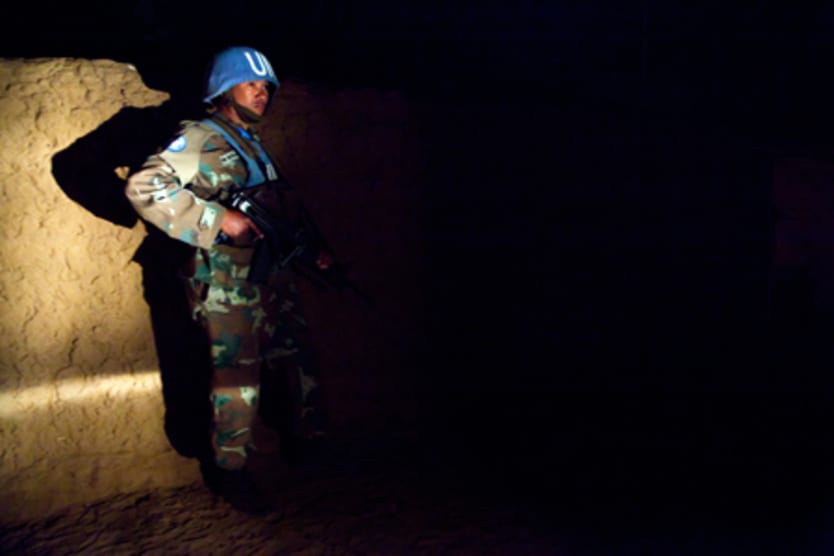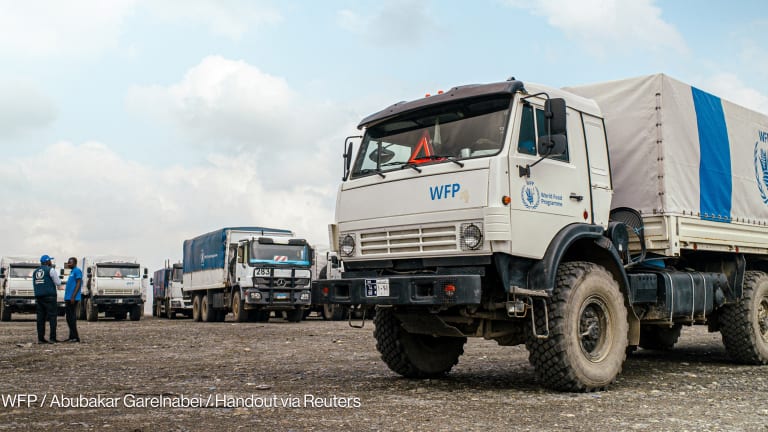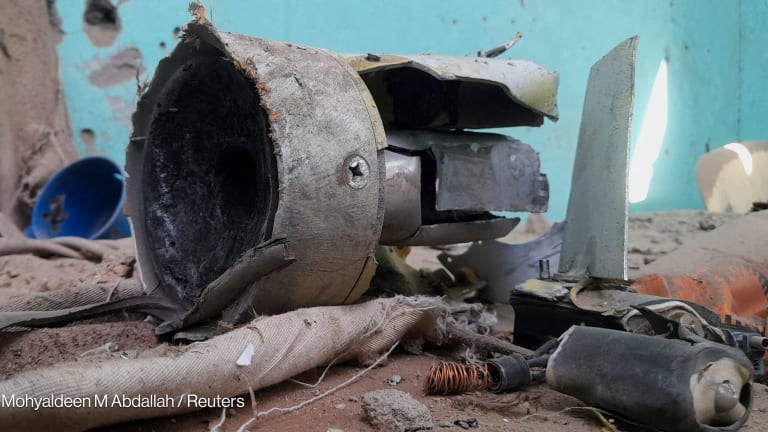
The United Nations Mission in Darfur carried out its latest delivery of non-food aid in Northern Darfur on Tuesday, reaching an approximate 70,000 displaced people affected by recent tribal clashes that flared over the control of gold mines in mid-January.
UNAMID has delivered its string of shipments of water-purifying equipment, sleeping mats and tarps by land and air, Christopher Cycmanick told Devex the next day, on Jan. 23. Cycmanick heads media relations for the peacekeeping mission, which assists the Office for the Coordination of Humanitarian Affairs, UNICEF and other U.N. institutions with logistical support and accompaniment.
The challenges UNAMID faces in the region are not unique – they are, Cycmanick said, shared by other groups as well. Security tops that list.
“On average, we have got about 170 to 200 patrols a day of military and police and any one of those patrols on a given day will be stopped by the military or another group saying you cannot access this area,” Cycmanick said. “Typically, this is an area where there have been clashes going on for one reason or another… It could be a road block, it could be a barrack or something else.”
In October 2012, a South African UNAMID peacekeeper was killed in an ambush in Darfur that wounded three others, two weeks after four Nigerian peacekeepers were killed and eight wounded in another attack in West Darfur.
The October attack has led UNAMID to be more cautious, Cycmanick said, but not to change the nature or course of its work.
The political situation in Darfur is “really tense” and working conditions are exacerbated by the size of the region, he added: “There is 1.5 peacekeeper for every 100 square kilometer of land. It’s a gigantic swath of land with incredible heat.”
On Wednesday a local radio station, Radio Dabanga, reported that since early January, the government of Sudan has stopped the work of half of the non-governmental organizations operating in internally displaced camps in El-Geneina, West Darfur’s capital. In Northern Darfur, essential roads connecting cities and facilitating the passage of food and non-food items remained closed on Wednesday because of security concerns, but were expected to soon re-open.
The reports of blocked aid deliveries came amidst the news that the Sudanese government and a rebel group, the Justice and Equality Movement, plan to reignite peace talks with the support of UNAMID.
“We have to acknowledge that everything is a very slow process,” said Cycmanick, who has been working in Darfur for about three years.
UNAMID’s is one of the larger 15 U.N. peacekeeping budgets, totaling $1.45 billion from July 2012 to June 2013, more than the budgets of the peacekeeping operations in both Haiti and the Democratic Republic of Congo. Still, Cycmanick and other aid officials are worried about dwindling support for their work in Darfur. The Darfur Reconstruction and Development Fund, for instance, remains underfunded.
“One of the problems we have is Darfur has fallen off the radar,” Cycmanick said. “There are a lot of other crises happening in the world right now, but it is still a very difficult situation here and we don’t want the focus to shift away from that.”
Much may hinge on an upcoming international donor conference in Doha. But the success of that meeting, which was initially planned for the end of last year, may be in jeopardy unless Khartoum speeds up the implementation of last year’s peace deal, which called for the disarmement of militias and the safe return of internally displaced people.
Read more development aid news online, and subscribe to The Development Newswire to receive top international development headlines from the world’s leading donors, news sources and opinion leaders — emailed to you FREE every business day.








